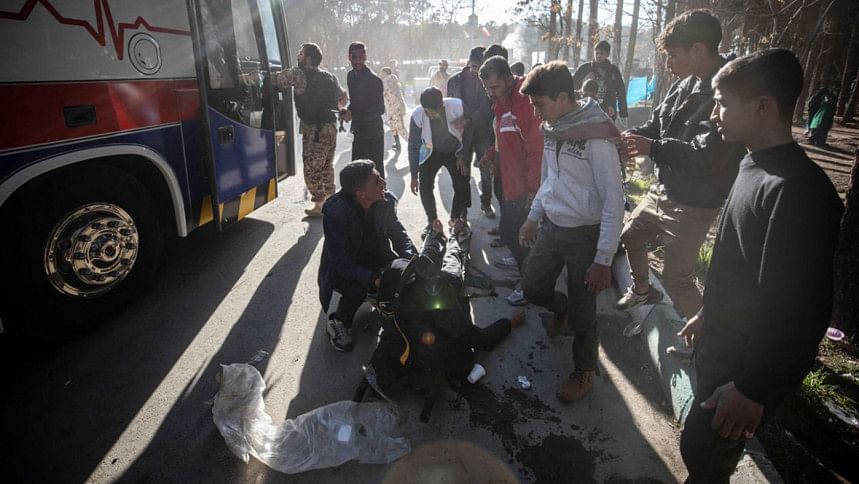103 killed in 'terrorist attacks' in Iran

Two explosions caused by 'terrorist attacks' killed more than 100 people and wounded scores at a ceremony in Iran to commemorate top commander Qassem Soleimani who was killed in a 2020 US drone attack, Iranian officials said today.
The blasts, which state television called a "terrorist attack", came with tensions running high in the Middle East a day after Hamas number two Saleh al-Aruri -- an Iran ally -- was killed in a Beirut drone strike which Lebanese officials blamed on Israel.
Iranian state television reported a first and then a second explosion during an anniversary event at the cemetery where Soleimani is buried in the southeastern city of Kerman.
"The number of people killed rose to 103 following the death of people injured during the terrorist explosions," the official IRNA news agency said.
IRNA said 141 people were wounded in the blasts with some "in critical condition".
"The blasts were caused by terrorist attacks," state media quoted a local official in the Kerman province as saying.
State TV showed Red Crescent rescuers attending to wounded people at the ceremony, where hundreds of Iranians had gathered to mark the anniversary of Soleimani's death. Some Iranian news agencies said the number of wounded people was much higher.
The ISNA news agency quoted Kerman mayor Saeed Tabrizi as saying the bombs exploded 10 minutes apart.
Online footage showed crowds scrambling to flee as security personnel cordoned off the area.
Images on state television showed several ambulances and rescue personnel in the area.
Soleimani headed the Quds Force, the foreign operations arm of Iran's Islamic Revolutionary Guards Corps, overseeing military operations across the Middle East.
Declared a "living martyr" by Iran's supreme leader Ayatollah Ali Khamenei while still alive, Soleimani was widely regarded as a hero for his role in defeating the Islamic State jihadist group in both Iraq and Syria.
In the eyes of many Iranians, his military and strategic prowess were instrumental in warding off the multi-ethnic disintegration of neighbouring countries such as Afghanistan as well as Syria and Iraq.
Long seen as a deadly adversary by the US and its allies, Soleimani was one of the most important powerbrokers across the region, setting Iran's political and military agenda in Syria, Iraq and Yemen.
On days after his death in 2020 and leading up to his funeral in Kerman, millions turned out to mourn in a show of national unity.
A survey published in 2018 by IranPoll and the University of Maryland found Soleimani had a popularity rating in Iran of 83 percent, ahead of then-president Hassan Rouhani and then-foreign minister Mohammad Javad Zarif.

 For all latest news, follow The Daily Star's Google News channel.
For all latest news, follow The Daily Star's Google News channel. 



Comments